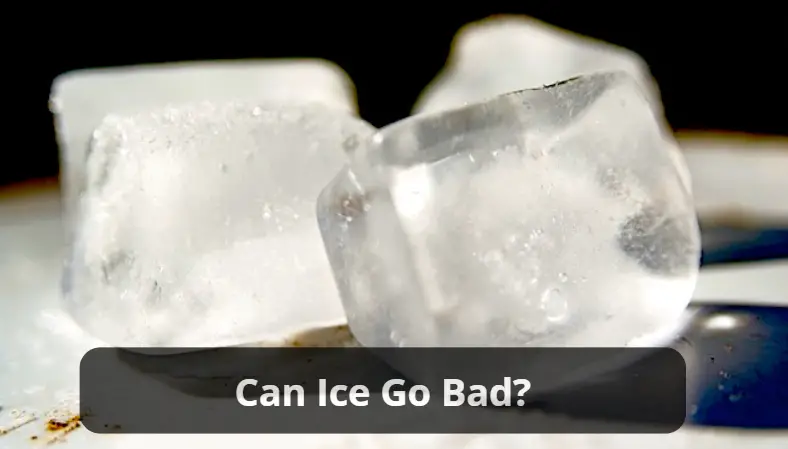
Can Ice Go Bad?
Table of Contents
Ice, at its core, is simply frozen water. When water reaches 0°C (32°F), it transitions from a liquid to a solid state due to slower molecular motion, forming a crystalline structure. Although this process is fundamental, the resulting quality of ice significantly hinges on both the freezing method and the original water quality. Freezing does not kill all bacteria or remove impurities, which means the conditions of the water before freezing can determine how ‘fresh’ or ‘bad’ your ice can taste or affect its safety.

The Role of Water Purity in Ice’s Lifespan
Imagine preparing a cup of coffee with water straight from a chlorinated pool versus water from a pristine mountain spring. The difference in taste, clarity, and quality would be stark, right? This difference translates directly into the ice-making process. Whether it’s trace minerals, organic compounds, or dissolved gases, the impurities in water will affect not only ice’s taste and smell but also how it freezes. Pure water tends to freeze clear and last longer, whereas impure water often results in cloudy, brittle ice that can degrade quicker.

How Storage Conditions Affect Ice Quality
One might think freezing temperatures stop everything in its tracks, but that’s not the case for ice. When left in the freezer for extended periods, particularly in frost-free models that cycle through defrosting periods, ice can absorb odors and flavors from the surrounding environment due to its porous nature. Ice can also begin to evaporate slowly in a process known as sublimation, leading to ‘freezer-burned’ ice that looks shriveled and tastes stale. Ensuring your freezer is set to an appropriate temperature and the ice is stored correctly in airtight, sealed bags or containers can drastically improve its shelf-life.
READ ALSO: Flake Ice Vs Nugget Ice Vs Cube Ice | How Are They Different?
Recognizing Bad Ice: Signs and Symptoms
How do you tell if ice is past its prime? There are a few clear signs:
- Clarity: Ice that is cloudy or has become opaque might indicate it has absorbed impurities.
- Smell: Ice should not have a noticeable odor; if it smells like the contents of your freezer, it’s time to make a fresh batch.
- Taste: Old ice may acquire a stale or off taste. If in doubt, it’s better to throw it out.
- Texture: Ice should be solid and crisp. If it’s soft or crumbly, it’s not fresh.
- Color: Any discoloration, which can happen from food particles or frost, signals that the ice should not be used.

Tips for Keeping Your Ice Fresh Longer
To keep your ice tasting fresh and prolong its shelf life, consider the following tips:
- Use Filtered Water: This can reduce impurities and prevent off-tastes.
- Regular Cleaning: Clean and sanitize your ice trays or ice maker regularly.
- Proper Storage: Keep ice in air-tight containers to shield it from freezer odors.
- Frequent Replacement: Don’t let it linger too long; routinely dump old ice.
- Avoid Contamination: Store ice away from raw foods and always use clean utensils to handle it.
Importance of a Clean Freezer
The condition of your freezer plays a significant role in the longevity and quality of your ice. Ice can absorb flavors and aromas from a dirty freezer or from uncovered leftovers. Regularly defrosting and cleaning your freezer helps keep your ice pure and your frozen goods in top condition.
Best Practices for Making and Storing Ice
Making and storing ice may look simple, but following the best practices ensures the highest quality and safety. Here’s how to make the perfect cubes:
- Boil Water Before Freezing: For clear ice, boil the water to remove air bubbles before freezing. This process is known as double boiling, and it can help to produce aesthetically pleasing clear ice cubes.
- Use Ice Trays with Lids: Protect the water from absorbing unwanted freezer smells by using ice trays with lids.
- Freeze Quickly: The faster water freezes, the smaller the ice crystals and the clearer the ice will be. Quick freezing locks purity in without leaving room for impurities to cluster.
- Regular Transfer to Storage: Once frozen, transfer the cubes to a clean, airtight container to prevent the ice from absorbing odors and dehydrating.
Smart Ways to Use Up Ice Before It Goes Bad
Don’t let your cubes grow old and lonely in the freezer corner. Maximize your ice by putting it to good use:
- Chill Drinks: The primary use for ice cubes, but remember that their quality will affect the taste of your drink.
- Smoothies: Ice can be a fantastic addition to smoothies, providing a frosty texture and coolness.
- Cold Packs: Bag up some ice in a sealable plastic bag, and you’ve got a makeshift cold pack for injuries or to keep food chilled on the go.
- Water Plants: Your plants may enjoy the slow melting of ice for a more gradual watering method.
- Cooking Prep: Use ice to blanch vegetables or cool down broth or sauces rapidly.

FAQs
How long does ice last in the freezer?
While there isn’t a hard expiration date, it’s best to use ice within one to two months after making it. After this period, the quality might decrease.
Can you get sick from old ice?
It’s uncommon but possible, especially if the ice is contaminated with bacteria or viruses due to poor handling or unsanitary storage conditions.
Is it OK to use ice that has freezer burn?
Freezer-burnt ice is safe to consume but may have an off-putting taste and smell that could ruin your beverage.
